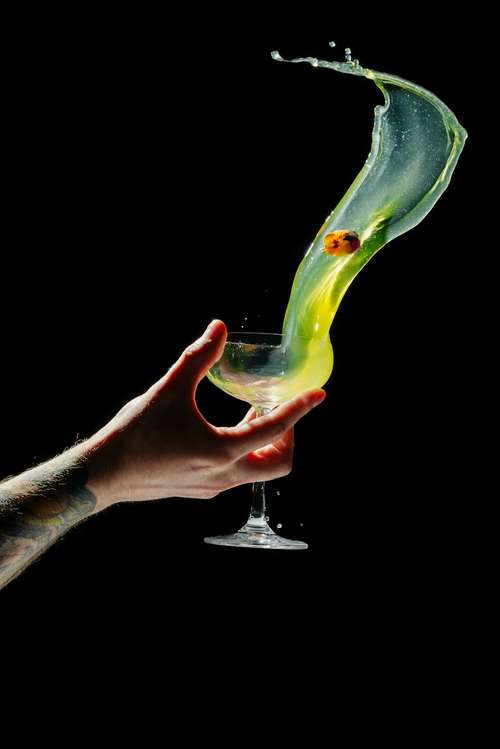This new study has sparked a wave of interest among those curious about the relationship between cannabis and alcohol. It appears that smoking cannabis has the potential to lower alcohol use by 27%, a finding that could reshape how we view substance use and addiction treatment. As someone interested in understanding these trends, you might ask yourself: Could this be the beginning of a new approach to alcohol reduction?
In a setting designed to mimic social environments, the study revealed that participants smoked cannabis and subsequently enjoyed a noticeable decrease in alcohol consumption. This surprising result invites us to explore the connection between cannabis effects and alcohol reduction, raising questions about the interplay between two widely used substances.
These findings are not only intriguing but also offer fresh insights into the benefits of cannabis when considered alongside alcohol consumption habits. In our everyday conversations, we often hear about the dangers of excessive drinking, and this research could represent a significant step forward.
Study and Findings
The segment of the investigation focused on understanding how cannabis might change drinking habits. Researchers set up a study environment that closely resembled a casual social setting. This was not just a laboratory experiment; it was almost like observing real life happen before our eyes.
In this study, participants who smoked cannabis showed a 27% decrease in their alcohol use compared to those who did not. This is a significant statistic—one that points to potential methods to reduce alcohol consumption through alternative routes. The notion that smoking cannabis could influence alcohol use may seem counterintuitive at first. Yet, as the study suggests, the cannabis impact on drinking behaviors could offer fresh insights into how substance use behaviors are influenced.
It’s fascinating to consider a world where the balance between cannabis and drinking is more harmonious. Some have even suggested that this might be a form of self-medicating behavior where one substance potentially reduces the need for another. The evidence here is part of emerging cannabis research that indicates a clear alcohol consumption decrease, which is ultimately promising for public health.
Exploring the Interplay of Cannabis and Alcohol
This section will zoom in on the unexpected relationship between cannabis and alcohol. It’s not everyday that you come across a study revealing a negative correlation—smoking cannabis associated with a drop in alcohol use.
People often wonder how these two substances, often seen as antithetical, might interact. When you think about it, the idea of cannabis and alcohol altering one another's effects might be as complex as mixing two paint colors. The hues might blend in ways that neither substance would on its own. Even though more studies are needed to validate these findings, early insights suggest that cannabis research might hold the key to unlocking new strategies for alcohol reduction.
The research offers us a valuable peek into the dynamics of cannabis and drinking behaviors. For example, participants reported feeling a sense of relaxation that reduced their desire for alcohol. This type of effect, when paired with controlled cannabis doses, might lead to the hopeful conclusion that there is potential for treating issues related to alcohol misuse.
The experiment underscores how cannabis benefits could extend beyond recreational or medicinal usage. Instead, they could pave the way for complementary methods in addiction treatment, especially when we consider the broader context of substance use management.
Potential Implications for Addiction Treatment
Given these impressive initial findings, it’s natural to wonder about how this information might be applied to addiction treatment. Researchers and clinicians alike are intrigued by the possibility of integrating cannabis research into strategies aimed at reducing alcohol consumption.
The idea is relatively simple: If smoking cannabis lowers alcohol use by 27%, perhaps it could be used as a tool to help individuals struggling with alcohol-related issues. During group discussions and one-on-one sessions, some health professionals have mentioned that exploring safer alternatives or complementary strategies could make a real difference in patient outcomes.
From my perspective, it seems almost like a spark of hope in a landscape where addiction treatments are constantly evolving. Of course, more research is needed to understand the long-term effects, dosage requirements, and potential risks, but the early scaffolding of data is promising. It also raises interesting questions about the cannabis versus alcohol debate, and how well different substances might work in tandem for a healthier balance.
In many communities, individuals who have struggled with harmful alcohol consumption might see these developments as a beacon of light. The study’s findings emphasize the importance of considering not only the direct effects of substances but also their possible interactions. This broadened view can lead to more innovative approaches in addiction and substance use management.
Looking Ahead: The Future of Cannabis Research
What does this mean for the future? The discovery that smoking cannabis can lead to lowered alcohol use by 27% sets the stage for a myriad of exciting research opportunities. Experts in the field are already brainstorming new studies to explore the cannabis and drinking relationship further, looking to refine the understanding of this dynamic.
In upcoming research, scientists might examine variables like dosage, frequency, and environmental factors in order to better determine the cannabis impact on alcohol consumption. By comparing different social scenarios, researchers hope to pinpoint exactly what triggers such a significant reduction. The conversation about cannabis benefits and alcohol reduction is just beginning, sparking debates in both scientific and everyday circles.
Additionally, policy makers and public health officials are watching these developments keenly. They know that any strategy that contributes to reducing harmful alcohol consumption is worth exploring. It is like seeing a new road being built—a path that could eventually lead to improved health outcomes for many individuals. The future of cannabis research could very well transform not only our understanding of substance use, but also the way we approach treatment for alcohol use disorders.
You might be thinking, how does all this translate into everyday life? Many individuals are starting to see the benefits of approaches that don't use a one-size-fits-all model when it comes to addiction treatment. Instead, integrating different strategies may offer the flexibility needed to address diverse needs. The research isn’t conclusive yet, but it certainly opens a door for thoughtful dialogue on cannabis versus alcohol and how these substances might work together rather than at odds with each other.
In every experiment, there’s a spark of hope—an anticipation for what subsequent studies might reveal. Even as we navigate the complexities of substance use, shifting our perspective on cannabis effects could help us find new ways to manage alcohol consumption. Every new insight is a piece of the puzzle in the grand scheme of health and well-being.
Conclusion: In wrapping up our exploration of this intriguing study, it’s clear that the discovery of a 27% reduction in alcohol consumption among those who smoked cannabis opens up exciting avenues for further research. While the dynamics between cannabis and alcohol will need more in-depth study, these early results provide an optimistic glimpse into potential new methods for addressing alcohol use disorders. They remind us that sometimes, innovative solutions come from rethinking what we already know about substance use. This insight into cannabis and drinking behaviors not only enriches our understanding of substance interactions but also sets the stage for future breakthroughs aimed at healthier communities.




